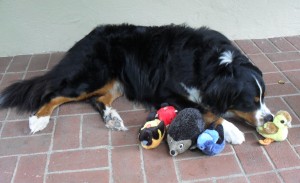 Individuals with a “considerate” communication style like hugging and gentle handshakes, according to HRDQ’s “What’s My Communication Style?” assessment.
Individuals with a “considerate” communication style like hugging and gentle handshakes, according to HRDQ’s “What’s My Communication Style?” assessment.
That statement often causes a cringe, including with yours truly, when I deliver the results of this assessment to the participants of my Strategic Action Group. Hugging and wimpy handshakes seem out of place in business.
Instead, those of us who are considerate in how we deal with others prefer to think of ourselves as good listeners, good counselors and trustworthy, especially considering that we value relationships—which HRDQ also acknowledges.
In fact, HRDQ says “considerate people value warm, personal relationships.”
Hugging aside, I’m now wondering if my personal work relationships could be considered extreme, compared with other consultants and their approaches.
For example, I identify my ideal clients as individuals, not organizations, although the organizations they work for is also important to me. And many of my clients are interconnected, although not necessarily interrelated.
Take one of my oldest associations, which is with Planned Parenthood. Contraception wasn’t as controversial 20 years ago when I started working with them, although they were still a lightning rod with some people and organizations.
So I expected I would self-select out of any potential client assignments with those who either objected to Planned Parenthood’s views or who considered Planned Parenthood too controversial.
Interestingly enough, the opposite has happened. The connections grew closer and tighter. When a client with whom I had worked with before brought me into her new firm, she confirmed that the retired chairman of the board was the husband of Planned Parenthood’s general counsel, whom I knew. We all definitely shared the same values!
Soon after this client acquired another consulting firm, and asked me to help with the integration of the two firms. This involved another Planned Parenthood person—a managing consultant of the acquired firm who had served as Planned Parenthood’s board chairman a few years earlier.
It was thanks to her strong facilitation and group dynamic skills that I ended up working for Planned Parenthood. The board chairman who followed this managing consultant was an Ob/Gyn. Over his career, he had put his life on the line to protect women’s reproductive rights and health but was very nervous about conducting board meetings. He asked the staff if they could find him support, which is how I got involved.
His passion for Planned Parenthood and its cause is one of the reasons I’m still involved. (See Win with resiliency about Planned Parenthood’s response to the recent Susan G. Komen Race for the Cure funding challenges.)
But that’s not the extent of my tight client connections. While in Portland last weekend at Planned Parenthood’s annual meeting, another client, who’s a friend on Facebook, got me hooked on “Draw Something,” the hit online game.
Between drawing and meeting, I explored the town with my husband who was able to join me on this trip. We wanted to bring back a memento for our dog Gustav, yet we had to shop carefully because two of my other clients have showered him with his favorite type of toys this past year, as pictured above.
Is there a downside to this considerate communication style? HRDQ does say that considerate people “tend to avoid change and prefer to do what is comfortable.”
Yet as a change coach and consultant, I say my behavior supports my philosophy about change. The way I connect with individuals and build relationships reinforces these principles, which permeate my work:
- Individuals change, which causes organizations to change, which is why change initiatives need to focus on individuals.
- Individuals are mammals, not machines, which means we’re warm-blooded social creatures. We all also exhibit both rational and emotional sides, which is why the case for change needs to appeal to both.
- Individuals respond best to the Platinum Rule, which is about being treated the way THEY want to be treated.
Focusing on individuals also makes work more interesting, enjoyable and rewarding.
What do you think?

0 Comments